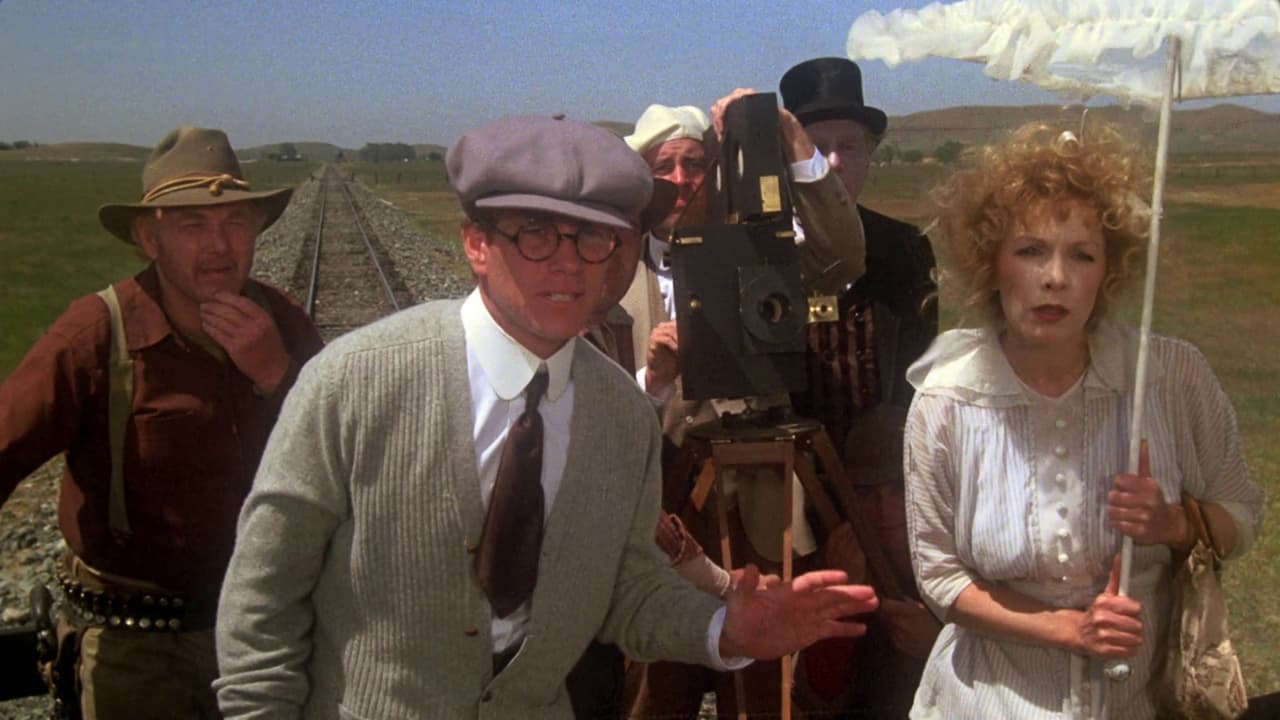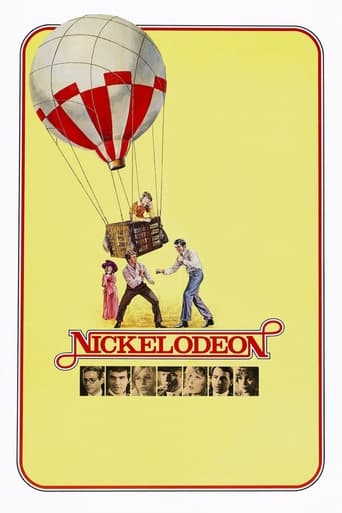

Very well executed
... View MoreA story that's too fascinating to pass by...
... View MoreWhile it doesn't offer any answers, it both thrills and makes you think.
... View MoreIt's a movie as timely as it is provocative and amazingly, for much of its running time, it is weirdly funny.
... View MoreThis is a light-hearted movie, with some funny slapstick moments. Has great period detail but could've done with a bit more depth of character.There are two versions of this movie on the DVD release (the one I have). The director's cut is apparently a few minutes longer than the theatrical release but I couldn't tell any difference between them. So the main difference is that the director's cut is in black and white while the other version is in colour. I'm not sure which I prefer. The black and white makes sense since the film is about the early days of American cinema, but the colour version looks great too; especially when they're out filming in the countryside.The ending, which portrays the premiere of DW Griffith's 'Birth of a Nation,' seems to be a lament for the demise of movies as purely fun entertainment and their transformation into serious works of art.
... View MoreThis has to be one of the most aggravating movies ever made. With the possible exception of Marty Scorsese, Peter Bogdanovich has the knowledge of the era. Unfortunately, the setting (1910-15) is the only thing that Bogdanovich gets right. Why slapstick? Nearly everyone is miscast (Reynolds, Ritter, who seems oblivious to the period), vapid (the beautiful Jane Hitchcock) or wasted (Stevens) and everyone is embroiled in a disjointed script (which seems oddly like a first draft) that abruptly jumps from slapstick to melodrama to comedy. I'd imagine that anyone interested in seeing the film would have some interest in embryonic filmmaking, but Nickelodeon is a total mess. The best scenes come at the very end; I'll disagree with another reviewer on one point: I felt that Ryan O'Neal's emotion while watching "The Clansman" (AKA Birth of a Nation") was the sad realization that he'd never make a film of that caliber, not that he was capable of better things. In some ways, Nickelodeon seems to be the culmination of so many period Hollywood films released in the mid 70's that went horribly wrong (W.C. Fields and Me, Gable and Lombard, Won Ton Ton, the Dog that Saved Hollywood)--- the two best (Day of the Locust, and the almost unseen Hearts of the West were also flawed); Nickelodeon is, considering the director and the budget, the worst offender, since it should've been so much better. It's a train wreck.
... View MoreAs the story goes, as I have heard it as a film collector, Indie Theatrical Genre re-creationist Film maker & historian/preservationist (There's a mouthful wasn't it!) Ryan O'Neal's character & premise to get into the infant film industry was taken by Masterful Bogdanovitch & lifted directly from the life of Leo McCary's start in the business. As he too had a situation where he was chased from the court building as a youthful law hopeful! Bogdanovith's read published book of the interviews he recorded from the Original Filmn Maker interviews especially had made me happy when I read of McCary's giving CHARLEY CHASE full credit for teaching him the trade he was to later win Oscars for when he had his own start at Hal Roach and many times was Assistant to Chase then later directed the Chase series taking over for Charley as the studio's Director General! Leo even originated the Mirror routine he was to later re use in DUCK SOUP with Groucho & Harpo when it originally appeared with Chase & brother Jimmy in the one reeler of 1924 SITTING PRETTY! Was this Charley's suggestion or Leo's? As the gag first was used by Max Linder in the teens it is more probably that Chase though of recreating it!
... View MoreIn 1975, I was a Teamster Driver for the studios, and one of the first locations was a location caterer for the movie Nickelodeon. With all of the behind the camera activities, I happened to notice a "drop-dead" beautiful woman, who was always near Ryan. Feeling more confident with myself during the second week, we started a conversation about everything, but really about nothing. We stayed in touch; she went her way and I went my way. Before a short period of time, we went out (she insisted on driving). Why? Because she owned a 1925 Silver Cloud, black and silver in color. That was 1979, and during the summer of '80, I landed a prime job as the caterer for a total of 9 weeks; at sea; off Catalina Island; 3 meals per day; 7 days a week. It was just me and the ship's crew of 7. I had to always be there to service cast, crew and the ship's crew. O.K. not bad, but it got a lot happier on the 4th week end. I phoned Sheree and asked her to visit. She did. We stayed close friends, and in 1994, we got married. I never did see the movie!
... View More